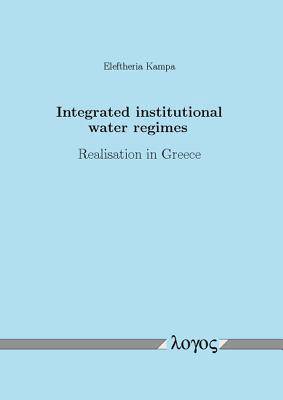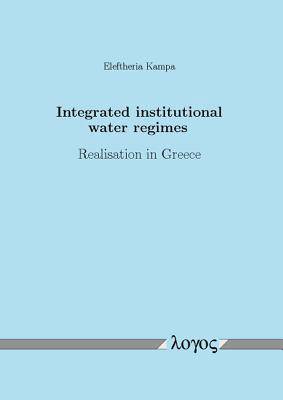
- Afhalen na 1 uur in een winkel met voorraad
- Gratis thuislevering in België vanaf € 30
- Ruim aanbod met 7 miljoen producten
- Afhalen na 1 uur in een winkel met voorraad
- Gratis thuislevering in België vanaf € 30
- Ruim aanbod met 7 miljoen producten
Zoeken
€ 98,45
+ 196 punten
Omschrijving
Greece currently faces a great challenge to manage its water resources in a more integrated and sustainable manner. This dissertation elaborates on this challenge which becomes more pressing in view of intensified water problems and policy requirements of the EU Water Framework Directive. Using the theoretical concept of institutional water regimes, the dissertation examines firstly whether there has been any change or attempts to change the Greek institutional water regime towards more integration to date. Secondly, it seeks to explain why there has been change (if any) or lack of change towards integration, in order to ultimately formulate recommendations for institutional improvements in this direction. The research aims of this dissertation were pursued empirically on the national level of Greece as well as in two case study areas in the Vegoritida and Mygdonian water basins. The analytical framework adopted for guiding the research draws from theories on public governance, property rights, institutional resource regimes and an actor-centered explanatory model of implementation.
Specificaties
Betrokkenen
- Auteur(s):
- Uitgeverij:
Inhoud
- Aantal bladzijden:
- 417
- Taal:
- Engels
Eigenschappen
- Productcode (EAN):
- 9783832517380
- Verschijningsdatum:
- 20/12/2007
- Uitvoering:
- Paperback
- Formaat:
- Trade paperback (VS)
- Afmetingen:
- 170 mm x 239 mm
- Gewicht:
- 738 g

Alleen bij Standaard Boekhandel
+ 196 punten op je klantenkaart van Standaard Boekhandel
Beoordelingen
We publiceren alleen reviews die voldoen aan de voorwaarden voor reviews. Bekijk onze voorwaarden voor reviews.







